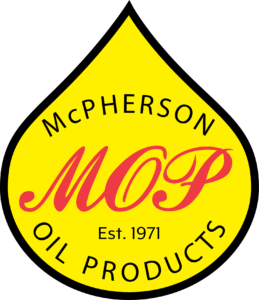The Truth Behind 6 Common Fuel Myths
28 Apr 2017, Posted by in General Fuel myths waste fuel for many companies. Uninformed drivers and managers may be trying to save the company money, but in reality, their practices are making things worse. When a business considers the cost of fuel services, it’s best to first look at the myths that could be silently dragging down their budget. Take a second to bust the following myths.
Fuel myths waste fuel for many companies. Uninformed drivers and managers may be trying to save the company money, but in reality, their practices are making things worse. When a business considers the cost of fuel services, it’s best to first look at the myths that could be silently dragging down their budget. Take a second to bust the following myths.
Myth: Cold Fuel is Denser — You’ll Get More for Your Money
First off, it’s hard to get cold fuel because the ground temperature where fuel is usually stored stays constant year-round. Also, a recent truck delivery could leave the fuel quite hot. The reality is that even if you could determine that fuel is cold, the density difference between hot and cold extremes will only make a one percent difference at most.
Myth: Starting and Stopping a Truck Takes More Fuel Than Idling
Starting and stopping a truck will save money during pickups and deliveries. In fact, some newer vehicles are equipped with mechanisms that stop and start the engine even at a stop light, saving fuel. Although this isn’t necessary for large fleet vehicles, cutting the engine off when the truck is sitting idle will save money. This doesn’t apply to sitting in traffic or waiting in line, because frequently restarting the engine wears out the starter.
Myth: Driving Below 55 is the Only Way to Save Fuel
Fuel efficiency peaks between 35 and 55 mph, but driving outside those parameters isn’t where most drivers lose efficiency. Drivers lose efficiency with fast starts and erratic driving behavior. Going easy on the gas pedal can make a big difference. That being said, every 5 mph over 60 is like paying 24 cents a gallon more for gas.
Myth: To Save Fuel, Shut Off the Air Conditioning and Roll Down the Windows
This may be true for slower speeds, but for speeds over 55 mph, rolling down the windows will greatly reduce efficiency, which ruins fuel economy. The reason for this is that the aerodynamics of the vehicle are greatly affected and drag increases. The energy required to propel the vehicle forward is greater than the energy needed to run the air conditioner.
Myth: Manual Transmissions Are Always More Efficient Than Automatics
A seasoned driver can make a manual more efficient than an automatic, but new AMT’s (Automatic Manual Transmissions) bridge the gap between automatics and manuals. Therefore, manuals are no longer always more efficient than automatics. Fleet managers may find an automatic transmission better suits the company’s needs, especially with less experienced drivers joining the team.
Myth: Small Fleet Vehicles Are the Only Way to Get Good Fuel Economy
Hybrids and clean diesels have made larger vehicles more efficient. That means that vehicles don’t have to be as small to be efficient. This allows companies to find the perfect ratio of fuel economy to cargo area to best suit their needs.
Fueling Your Fleet
McPherson Oil is in the business of providing for all your petroleum needs. This includes everything from savings with a fleet card to fuel contracts and delivery. It’s what we call our Total Petroleum Management. This means that you can have all your petroleum needs met from one supplier.
Let us save your company time and money. Contact McPherson Oil or call 888 802 7500 today.
